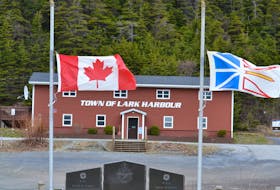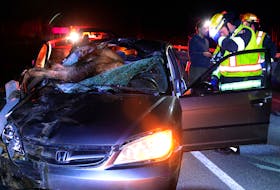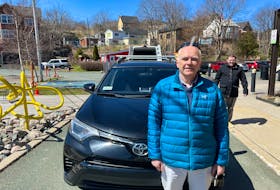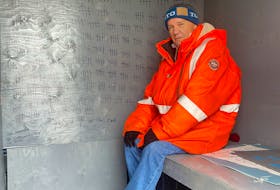Brad Verge had his whole world flip three years ago when he started losing his sight.
Diabetes began to rob the carpenter of an essential means to provide for his family. Blood had gathered behind the retina in his right eye resulting in a loss of vision to 21 per cent.
A lazy left eye that doesn’t see at all has caused Verge to adjust to a whole new world.
The Triton resident lost the ability to drive and he’s had to find new ways to do his job. He uses an easy to see Sharpie marker instead of a pencil to mark his work. He has a talking watch, talking measuring tape and other tools that get him through.
“It's just slower going is all,” he said. “That's all you can do. You can’t rush any more.”
It was a big adjustment, but he is making his way through his new life. The route he is taking got a little bit of help earlier this month when Verge attended the Canadian Council for the Blind Adult Camp held at the Lion Max Simms Memorial Camp Aug. 11-17.
“This is beautiful,” Verge said of the camp.
Some 69 adults with visual impairments from across Atlantic Canada came to the camp, located a few kilometres off the Bay d’Espoir
Highway.
There they played bingo, had a talent show, played music and learned things about their disability through workshops all week long.
They attended classes on guiding, mindfulness and other subjects hosted by representatives from the Canadian National Institute for the Blind.
“It's really a lot of work throughout the year,” said organizing committee member Michelle Bartram. “It is very much a social camp but it is also rehabilitation.”
Corner Brook’s Emily Payne found the camp three years ago.
Payne was born with a lazy eye and has continued to lose vision. She points out she can see clearly to a four-feet distance before her vision becomes gradually out of focus.
Before getting involved with the camp, Payne felt like she was caught in a space between two worlds.
She didn’t fit in with normal seeing people and she was born just blind enough to be considered visually impaired.
“It is like walking into a family that knew how you felt,” she said. ”This camp is almost over and I’m already looking forward to next year.
“It is the highlight of my summer. I’ve found a place for me and it feels like it's given me my life back.”
That welcoming attitude is something the organizers of the camp take great pride in providing for the campers.
There are new campers and there are veterans. People like Ron Hurley and Winston Penney who have attendance of 25 years and 38 years, respectively, under their belts.
Organizers want the camp to be a space where people with visual impairments can come and feel welcomed. Campers receive training on how to work beyond their disability and they get to share their life experiences with each other.
Not every piece of advice will work for all, but there is always a belief something will help someone.
“The idea is to bring in new visually impaired people so we can help them find out what it is all about,” said Bartram. “Sometimes it is just knowing another visually impaired person who has gone through it.
“What we find is that people get to come here and try things they never get the chance to try at home. The hope is that when they go home, they will get the chance to try these things again.”
Bishop's Falls adult camp for the visually impaired help people find a home
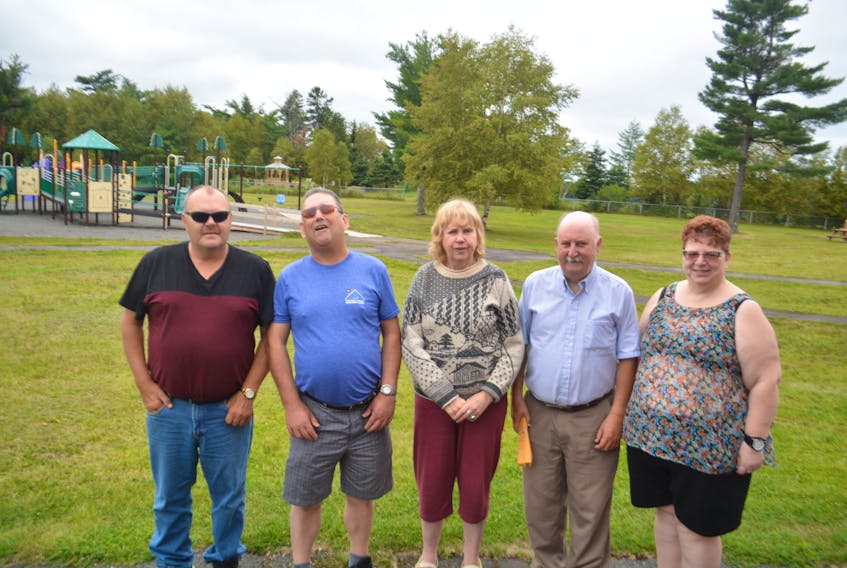
STORY CONTINUES BELOW THESE SALTWIRE VIDEOS
Sidney Crosby & Drake Batherson NS Showdown #hockey #halifax #sports #penguins #ottawa


